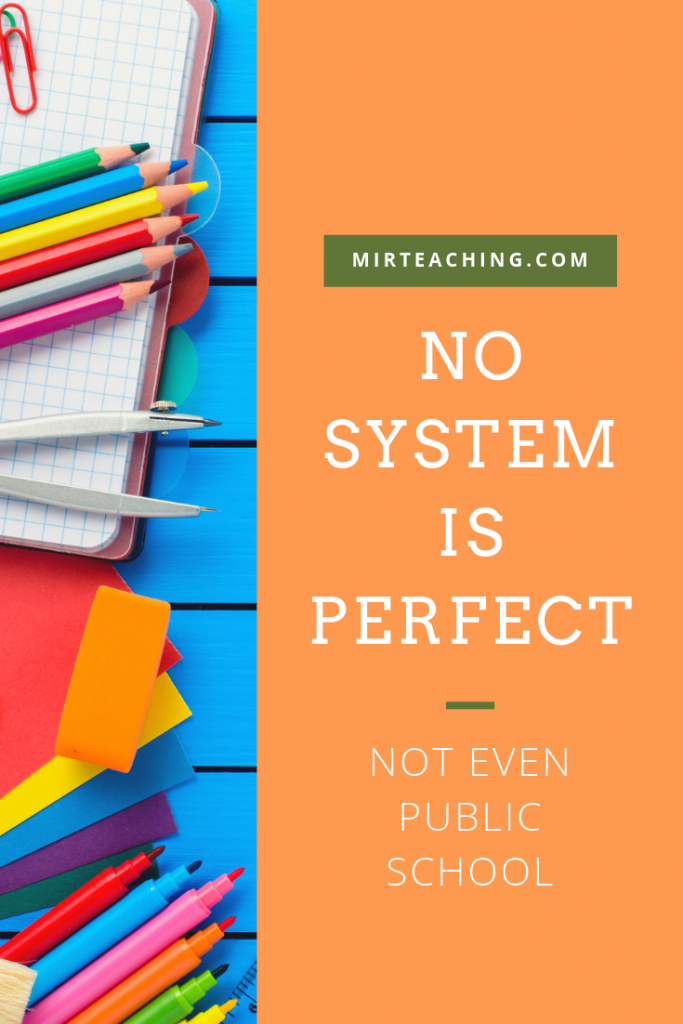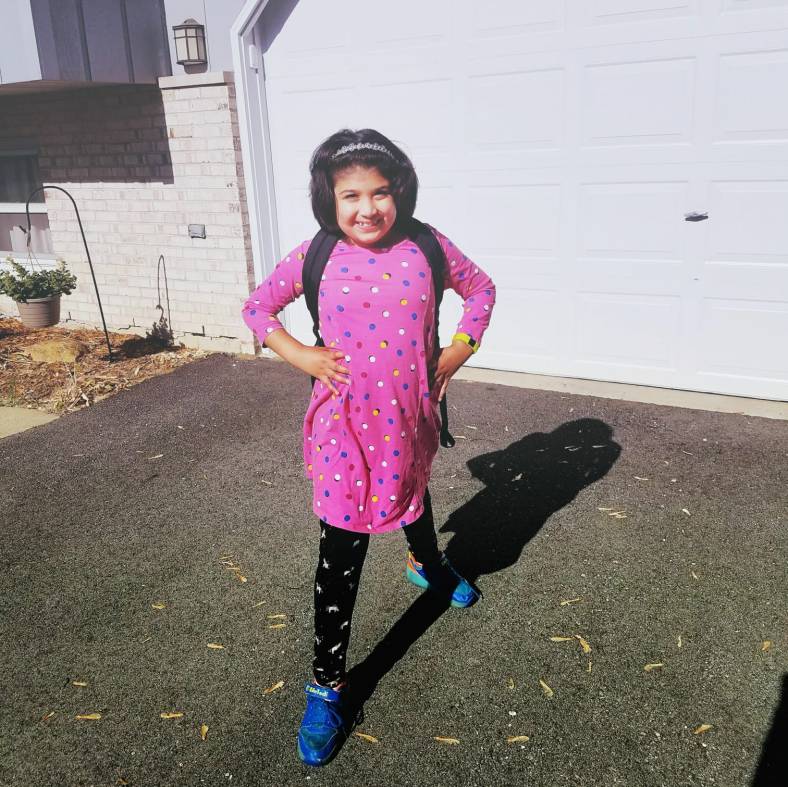No system is perfect. Let me repeat, no system is perfect. Public schools are not perfect. A system started by Horace Mann in the 1800s is going to have flaws. From lack of new textbooks, turnover over teachers to even missing school funds, the problems can be many. I am a public school teacher and I love teaching at my school in Suburban Chicago. However, there are positives and negatives. As a parent, when you decide what kind of school to send your child, be it public, private, Montessori or parochial, you need to make an informed decision.

I’m here to provide a little behind the scenes action since I have taught in public, international and parochial schools!
In the ideal situation, you are lucky to live in an award-winning school district area. Your specific school within your residential boundaries has high ratings on almost all review websites. You register your child with lengthy paperwork and receive an email informing you that your child has been placed in Ms. Smith’s classroom. You don’t know how many years of experience Ms. Smith has, which university she went to. Does she provide homework, project-based learning? You will find out most of this information during open house.

If you decide that you don’t like Ms. Smith’s teaching style and decide that a better placement for your child is Ms. Radcliff’s classroom, too bad. You don’t get a choice. You are one parent amongst 200 to 300 parents depending on your school size. Parent preference regarding teacher selection is rare and miniscule. For example, my daughter’s public school teacher this year had a no homework policy. I prefer homework for elementary years, practice makes perfect and I enjoy seeing what my daughter is working on in the classroom. For second grade, I had no clue what my daughter was working on until the graded worksheets and tests came home, which is too late for me to help her out with any concepts she might not understand. However, the three other second grade teachers in my daughter’s grade level did assign extensive homework. There can be a disparity between different teachers in the same grade level.
Another major disadvantage for minority children in public school like my daughter is the dreaded home language survey. Many parents advised me to put down only English on the survey when I registered. I felt weird putting false information for my daughter at the beginning of the year. It seemed like she was starting off with a lie. You see, my daughter does speak a second language: Urdu. She can also read and write Arabic and is working on speaking it fluently. I’m proud of her trilingual progress and I wanted to make sure the school knew it too. That was a big mistake I made. I wish I only put down English.

When you mark down that your child speaks more than one language, he or she is marked as an ELL student, English language learner. Despite the fact that she reads, writes, thinks in English and is far more talented in English compared to the other languages, it doesn’t matter for the public school. Your child will be pulled out, tested multiple times throughout the year and given ELL classes. The classes are remedial and not at the same pace as general education classes. Kids who have learning difficulties and no learning difficulties are placed in the same classroom since there isn’t an honors ELL class. I had to argue a lot with my school district and explain why I’m refusing ELL services. However, the stigma of the ELL label will be on her school record for awhile. So please consider if your child is truly a student who is learning English compared to fluent English but also knows several other languages.
Lastly, let’s leave with the positive: the resources. Art classes, music classes, physical education every single day, beautiful media centers, libraries filled with books, iPads for lessons, it’s all there. Money is sometimes not an issue with public schools compared to parochial schools. If your child is special needs, public schools provide the best services in terms of speech, physical therapy or occupational therapy. There are obviously other types of services, whatever your child needs. The school is required to provide the best learning environment for your special needs child.

With that said, my experience with public schools is from the Suburban Chicago area. If we’re talking about rural public schools or inner-city public schools with lotteries, that’s a whole different ball game. I know teachers who teach in the above-mentioned systems and I’m more than happy to get you connected with them. Thank you for reading and fair warning, next post is going to be about parochial (religious) schools!
